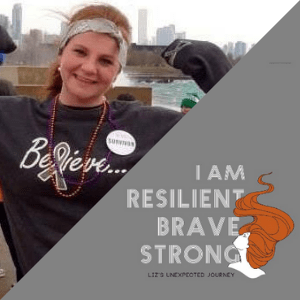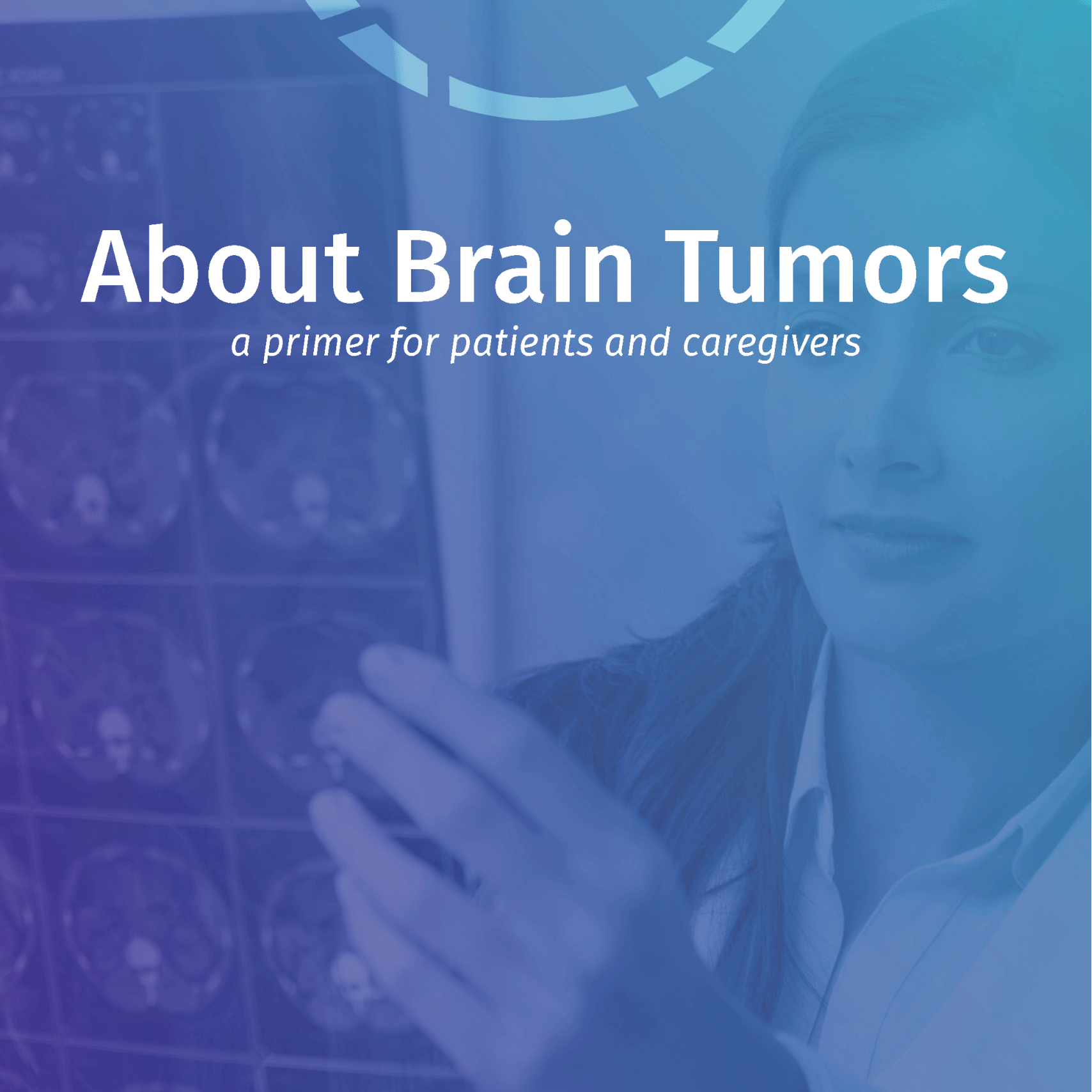A brain tumor diagnosis can feel like an overwhelming and life-changing event, triggering a range of emotions such as fear, anxiety, and uncertainty about the future. Whether you’re a patient or a caregiver, navigating the challenges that follow the diagnosis can seem daunting. However, with the right tools and strategies, you can manage the emotional and physical impacts, find strength, and improve overall well-being.
Here are key strategies for coping after a brain tumor diagnosis, as shared by experts like Dr. Deborah Forst, neuro-oncologist at Massachusetts General Hospital at the “Living With a Brain Tumor” Patient Family Meeting. You can find the entire program here.
1. Acknowledge Your Emotions
One of the first and most important steps after a diagnosis is to allow yourself to feel and acknowledge the emotions that come with it. Many patients report feeling shock, grief, anger, or disbelief. Recognizing that these feelings are normal and valid is crucial to moving forward.
Tips:
- Give yourself time to process. Whether through journaling, speaking with a counselor, or talking with loved ones, it’s important to express and process your emotions.
- Be kind to yourself. Understand that it’s okay to feel a wide range of emotions, including fear or sadness. Allow yourself the space to grieve the changes in your life.
2. Learn About Your Diagnosis
Understanding your diagnosis can help alleviate some of the fear and uncertainty. Learning about your specific type of brain tumor, treatment options, and prognosis can empower you to make informed decisions and take control of your health journey.
Tips:
- Ask questions. During appointments with your doctor, don’t hesitate to ask for clarity about your diagnosis, treatment options, and expected outcomes.
- Research reliable sources. Stick to trusted organizations like the American Brain Tumor Association (ABTA), medical journals, and reputable healthcare institutions to avoid misinformation.
- Take notes or bring a loved one to medical appointments to help remember details and ask follow-up questions.
3. Develop a Support System
Having a strong support network is essential. Whether it’s family, friends, or a professional support group, connecting with others who understand your experience can provide emotional relief and practical assistance.
Tips:
- Lean on family and friends. Don’t hesitate to ask for help, whether it’s emotional support, help with daily tasks, or just someone to talk to.
- Join a support group. Many brain tumor patients and caregivers find comfort in connecting with others going through similar experiences. Online or in-person support groups can offer a safe space to share and learn from each other.
- Consider professional support. Speaking with a counselor, psychologist, or social worker experienced in oncology can be invaluable in managing the emotional toll of a brain tumor diagnosis.
4. Focus on What You Can Control
It’s easy to feel overwhelmed by the uncertainty that a brain tumor diagnosis brings. While much of your health journey may feel out of your control, focusing on what you can manage can reduce anxiety and give you a sense of empowerment.
Tips:
- Establish routines. A daily routine can provide structure and stability, helping you regain a sense of control.
- Take charge of your medical care. Stay involved in your treatment decisions, ask about options, and maintain open communication with your healthcare team.
- Break tasks into small steps. When you feel overwhelmed, break down tasks into manageable pieces to help you stay grounded.
5. Practice Self-Care
Taking care of your physical and emotional health is key to improving your quality of life after a diagnosis. Engaging in self-care can reduce stress, improve mood, and support your body as you navigate treatments and recoveries.
Tips:
- Physical activity: Staying active, even with gentle exercise like walking or yoga, can help improve mood, reduce fatigue, and boost overall well-being. Speak with your doctor about what types of physical activity are safe for you.
- Nutrition: Eating a balanced, nutrient-rich diet can support your immune system, maintain your strength, and enhance recovery. Consider working with a nutritionist to develop a plan that meets your specific needs.
- Sleep: Make sleep a priority. Sleep plays a critical role in healing, and it’s essential to manage fatigue. Create a calming bedtime routine, and speak with your doctor if you experience sleep disruptions.
- Mindfulness and relaxation: Practices such as mindfulness meditation, deep breathing exercises, or spending time in nature can reduce stress and anxiety. Even a few minutes a day can help reset your mindset and improve emotional well-being.
6. Seek Professional Help for Managing Mental Health
It’s not uncommon for brain tumor patients to experience anxiety, depression, or post-traumatic stress. The emotional and psychological impact of a diagnosis can be profound, and seeking professional mental health support can help you navigate these challenges.
Tips:
- Speak with a therapist or counselor. A professional who specializes in oncology or chronic illness can provide tools and techniques to manage anxiety, depression, and emotional trauma.
- Consider cognitive behavioral therapy (CBT). This form of therapy can help you reframe negative thought patterns and develop healthier ways of coping with stress.
- Look into medications. In some cases, antidepressants or anti-anxiety medications can be helpful in managing mood changes and stress. Speak with your healthcare provider to explore these options if needed.
7. Improve Communication with Your Healthcare Team
Effective communication with your healthcare providers is vital for managing your condition and navigating treatment options. Having a clear understanding of your medical care can reduce anxiety and help you feel more in control.
Tips:
- Prepare for appointments. Write down questions and concerns ahead of time to ensure that you get the information you need.
- Request a follow-up after tests. Some patients experience anxiety (often referred to as “scanxiety”) waiting for test results. If possible, schedule follow-up appointments quickly after scans to discuss results with your doctor, rather than waiting for updates through a patient portal.
- Ask for clarification. If you’re unsure about anything, ask your doctor to explain it again or provide written materials.
8. Focus on What Brings You Joy and Purpose
A brain tumor diagnosis often shifts priorities, and many patients find new sources of meaning and fulfillment. Embracing what brings you joy, whether it’s spending time with loved ones, pursuing hobbies, or trying new experiences, can help boost your mental and emotional health.
Tips:
- Reconnect with loved ones. Strengthening relationships and spending time with people who uplift and support you can bring comfort and fulfillment.
- Engage in activities you enjoy. Whether it’s reading, gardening, painting, or listening to music, participating in activities that bring you joy can help you stay connected to your sense of self.
- Explore new interests. If physical or cognitive changes limit some activities, consider discovering new hobbies or experiences that align with your current abilities and interests.
9. Embrace Adaptability and Flexibility
Life after a brain tumor diagnosis often means adapting to new limitations, roles, and responsibilities. While it can be difficult, being open to change and finding new ways to live fully can enhance your quality of life.
Tips:
- Avoid all-or-nothing thinking. If you can’t participate in certain activities the way you used to, find ways to modify or adapt them so you can still enjoy them. For example, if you used to love traveling but can no longer fly, explore local destinations that are accessible by car.
- Accept help when needed. It’s okay to lean on others for assistance, whether it’s with daily tasks, emotional support, or medical care. Allowing yourself to receive help can reduce stress and make life more manageable.
Conclusion
Coping with a brain tumor diagnosis is a deeply personal journey that requires emotional resilience, physical care, and a strong support system. By implementing these strategies—acknowledging your emotions, seeking support, focusing on self-care, and maintaining open communication with your healthcare team—you can take proactive steps toward improving your quality of life. Remember, you are not alone in this journey, and with time and the right resources, you can find ways to live fully and meaningfully after a brain tumor diagnosis.
Watch the recording:

















